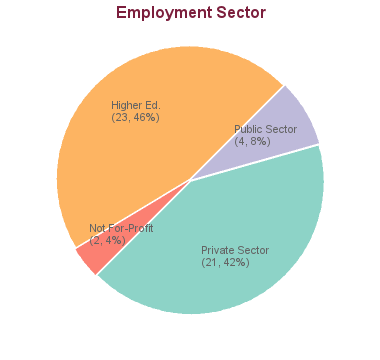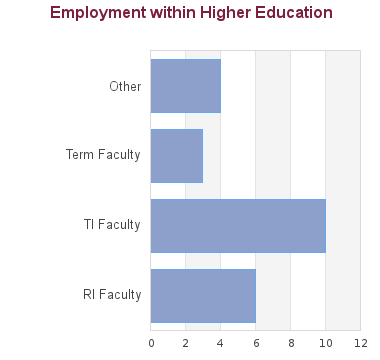Canadian Immigration Updates
Review details about the recently announced changes to study and work permits that apply to master’s and doctoral degree students. Read more
Overview
The Counselling Psychology Program, in line with the mission of the research-intensive University of British Columbia, creates, advances and critically examines knowledge in counselling psychology, especially with respect to its validity, applicability, limits, and interface with other disciplines. In developing and applying pertinent and innovative research methodologies, the Counselling Psychology Program relies upon and builds qualitative and quantitative evidence to determine effective counselling interventions in educational, community, health, and occupational settings.
Our Doctoral Program is accredited by the Canadian Psychological Association and follows the scientist-practitioner model for the education of counselling psychologists: students receive a substantial education as both researchers and professional psychologists. Designed for those with relevant experience who want to gain doctoral level competence, this program enhances research, counselling theory, and counselling skills.
Quick Facts
Program Enquiries
Contact the program
Admission Information & Requirements
1) Check Eligibility
Minimum Academic Requirements
The Faculty of Graduate and Postdoctoral Studies establishes the minimum admission requirements common to all applicants, usually a minimum overall average in the B+ range (76% at UBC). The graduate program that you are applying to may have additional requirements. Please review the specific requirements for applicants with credentials from institutions in:
Each program may set higher academic minimum requirements. Please review the program website carefully to understand the program requirements. Meeting the minimum requirements does not guarantee admission as it is a competitive process.
English Language Test
Applicants from a university outside Canada in which English is not the primary language of instruction must provide results of an English language proficiency examination as part of their application. Tests must have been taken within the last 24 months at the time of submission of your application.
Minimum requirements for the two most common English language proficiency tests to apply to this program are listed below:
TOEFL: Test of English as a Foreign Language - internet-based
Overall score requirement: 90
Reading
22
Writing
22
Speaking
22
Listening
22
IELTS: International English Language Testing System
Overall score requirement: 6.5
Reading
6.0
Writing
6.0
Speaking
6.0
Listening
6.0
Other Test Scores
Some programs require additional test scores such as the Graduate Record Examination (GRE) or the Graduate Management Test (GMAT). The requirements for this program are:
The GRE is required by all applicants.
2) Meet Deadlines
September 2026 Intake
Application Open Date
19 September 2025Canadian Applicants
International Applicants
3) Prepare Application
Transcripts
All applicants have to submit transcripts from all past post-secondary study. Document submission requirements depend on whether your institution of study is within Canada or outside of Canada.
Letters of Reference
A minimum of two references are required for application to graduate programs at UBC. Each graduate program determines the type of reference (e.g. academic, professional) and number of references they require which can range from 2 to 4. References should be requested from individuals who are prepared to provide a report on your qualifications for the program.
Statement of Interest
Many programs require a statement of interest, sometimes called a "statement of intent", "description of research interests" or something similar.
Supervision
Students in research-based programs usually require a faculty member to function as their thesis supervisor. Please follow the instructions provided by each program whether applicants should contact faculty members.
Instructions regarding thesis supervisor contact for Doctor of Philosophy in Counselling Psychology (PhD)
Criminal Record Check
Citizenship Verification
Permanent Residents of Canada must provide a clear photocopy of both sides of the Permanent Resident card.
4) Apply Online
All applicants must complete an online application form and pay the application fee to be considered for admission to UBC.
Tuition & Financial Support
Tuition
| Fees | Canadian Citizen / Permanent Resident / Refugee / Diplomat | International |
|---|---|---|
| Application Fee | $116.25 | $168.25 |
| Tuition * | ||
| Installments per year | 3 | 3 |
| Tuition per installment | $1,875.34 | $3,294.66 |
| Tuition per year (plus annual increase, usually 2%-5%) | $5,626.02 | $9,883.98 |
| Int. Tuition Award (ITA) per year (if eligible) | $3,200.00 (-) | |
| Other Fees and Costs | ||
| Student Fees (yearly) | $1,144.10 (approx.) | |
| Costs of living | Estimate your costs of living with our interactive tool in order to start developing a financial plan for your graduate studies. | |
All fees for the year are subject to adjustment and UBC reserves the right to change any fees without notice at any time, including tuition and student fees. Tuition fees are reviewed annually by the UBC Board of Governors. In recent years, tuition increases have been 2% for continuing domestic students and between 2% and 5% for continuing international students. New students may see higher increases in tuition. Admitted students who defer their admission are subject to the potentially higher tuition fees for incoming students effective at the later program start date. In case of a discrepancy between this webpage and the UBC Calendar, the UBC Calendar entry will be held to be correct.
Financial Support
Applicants to UBC have access to a variety of funding options, including merit-based (i.e. based on your academic performance) and need-based (i.e. based on your financial situation) opportunities.
Program Funding Packages
From September 2024 all full-time students in UBC-Vancouver PhD programs will be provided with a funding package of at least $24,000 for each of the first four years of their PhD. The funding package may consist of any combination of internal or external awards, teaching-related work, research assistantships, and graduate academic assistantships. Please note that many graduate programs provide funding packages that are substantially greater than $24,000 per year. Please check with your prospective graduate program for specific details of the funding provided to its PhD students.
Funding Statistics
This results in a net balance (any funding provided to the student minus tuition and fees) mean of $24,067 and median of $19,949.
- 2 students received Teaching Assistantships. Median TA funding based on 2 students was $14,363.
- 4 students received Research Assistantships. Median RA funding based on 4 students was $5,647.
- 2 students received Academic Assistantships. Median AA funding based on 2 students was $807.
- 10 students received internal awards. Median internal award funding based on 10 students was $23,058.
- 1 student received external awards valued at $35,000.
Review methodology
Scholarships & awards (merit-based funding)
All applicants are encouraged to review the awards listing to identify potential opportunities to fund their graduate education. The database lists merit-based scholarships and awards and allows for filtering by various criteria, such as domestic vs. international or degree level.
Graduate Research Assistantships (GRA)
Many professors are able to provide Research Assistantships (GRA) from their research grants to support full-time graduate students studying under their supervision. The duties constitute part of the student's graduate degree requirements. A Graduate Research Assistantship is considered a form of fellowship for a period of graduate study and is therefore not covered by a collective agreement. Stipends vary widely, and are dependent on the field of study and the type of research grant from which the assistantship is being funded.
Graduate Teaching Assistantships (GTA)
Graduate programs may have Teaching Assistantships available for registered full-time graduate students. Full teaching assistantships involve 12 hours work per week in preparation, lecturing, or laboratory instruction although many graduate programs offer partial TA appointments at less than 12 hours per week. Teaching assistantship rates are set by collective bargaining between the University and the Teaching Assistants' Union.
Graduate Academic Assistantships (GAA)
Academic Assistantships are employment opportunities to perform work that is relevant to the university or to an individual faculty member, but not to support the student’s graduate research and thesis. Wages are considered regular earnings and when paid monthly, include vacation pay.
Financial aid (need-based funding)
Canadian and US applicants may qualify for governmental loans to finance their studies. Please review eligibility and types of loans.
All students may be able to access private sector or bank loans.
Foreign government scholarships
Many foreign governments provide support to their citizens in pursuing education abroad. International applicants should check the various governmental resources in their home country, such as the Department of Education, for available scholarships.
Working while studying
The possibility to pursue work to supplement income may depend on the demands the program has on students. It should be carefully weighed if work leads to prolonged program durations or whether work placements can be meaningfully embedded into a program.
International students enrolled as full-time students with a valid study permit can work on campus for unlimited hours and work off-campus for no more than 24 hours a week during academic sessions.
A good starting point to explore student jobs is the UBC Work Learn program or a Co-Op placement.
Tax credits and RRSP withdrawals
Students with taxable income in Canada may be able to claim federal or provincial tax credits.
Canadian residents with RRSP accounts may be able to use the Lifelong Learning Plan (LLP) which allows students to withdraw amounts from their registered retirement savings plan (RRSPs) to finance full-time training or education for themselves or their partner.
Please review Filing taxes in Canada on the student services website for more information.
Cost Estimator
Applicants have access to the cost estimator to develop a financial plan that takes into account various income sources and expenses.
Career Outcomes
52 students graduated between 2005 and 2013. Of these, career information was obtained for 50 alumni (based on research conducted between Feb-May 2016):


RI (Research-Intensive) Faculty: typically tenure-track faculty positions (equivalent of the North American Assistant Professor, Associate Professor, and Professor positions) in PhD-granting institutions
TI (Teaching-Intensive) Faculty: typically full-time faculty positions in colleges or in institutions not granting PhDs, and teaching faculty at PhD-granting institutions
Term Faculty: faculty in term appointments (e.g. sessional lecturers, visiting assistant professors, etc.)
Sample Employers in Higher Education
University of British Columbia (7)Adler University (3)
Kwantlen Polytechnic University (2)
Trinity Western University (2)
Douglas College (2)
Simon Fraser University (2)
Smith College
Langara College
University of Chile
Royal Roads University
Sample Employers Outside Higher Education
A.T. Malcolm and Associates (2)Surrey Memorial Hospital
Simon Cunningham School
Caribbean Mental Health Consultants
Richmond Counseling
Doctors of BC
Orion Health Rehabilitation Centres
Creative Transitions
Campbell and Fairweather Psychology Group
Grace Fertility
Sample Job Titles Outside Higher Education
Psychologist (14)Registered Psychologist (3)
Senior Clinical Practice Manager
Clinical Psychologist
Counselling Pscyhology
Psychologist/ Performance Consultant
Psychotherapist
Vocational Rehabilitation Consultant/Clinical Counsellor
Counselor
Practice Initiative Lead
PhD Career Outcome Survey
You may view the full report on career outcomes of UBC PhD graduates on outcomes.grad.ubc.ca.Disclaimer
These data represent historical employment information and do not guarantee future employment prospects for graduates of this program. They are for informational purposes only. Data were collected through either alumni surveys or internet research.Enrolment, Duration & Other Stats
These statistics show data for the Doctor of Philosophy in Counselling Psychology (PhD). Data are separated for each degree program combination. You may view data for other degree options in the respective program profile.
ENROLMENT DATA
| 2023 | 2022 | 2021 | 2020 | 2019 | |
|---|---|---|---|---|---|
| Applications | 13 | 21 | 17 | 19 | 25 |
| Offers | 3 | 2 | 3 | 4 | 6 |
| New Enrolment | 2 | 2 | 3 | 4 | 5 |
| Total Enrolment | 31 | 32 | 32 | 35 | 37 |
Completion Rates & Times
Disclaimer
Upcoming Doctoral Exams
Tuesday, 22 July 2025 - 1:00pm
Research Supervisors
Supervision
Students in research-based programs usually require a faculty member to function as their thesis supervisor. Please follow the instructions provided by each program whether applicants should contact faculty members.
Instructions regarding thesis supervisor contact for Doctor of Philosophy in Counselling Psychology (PhD)
Advice and insights from UBC Faculty on reaching out to supervisors
These videos contain some general advice from faculty across UBC on finding and reaching out to a supervisor. They are not program specific.
Doctoral Citations
| Year | Citation |
|---|---|
| 2016 | Dr. Fellner used Cree/Métis research to explore how mental health services can better serve urban Indigenous communities. She developed a decolonizing framework based in Indigenous ways of knowing, being, and doing, to guide changes in research, training, practice, and policy that may contribute to healing and wellness with Indigenous communities. |
| 2015 | Dr. Conn studied the factors that helped or hindered police officers as they tried to maintain life roles outside of policing. Personal standards were the strongest helping factor and work hours were the strongest hindering factor as they sought to achieve balance. This research helps us understand the work-life balance practices of police officers. |
| 2015 | Dr. Socholotiuk examined how parents of adolescents with anorexia worked together in family-based treatments. She found that the process was influenced by the parents' sense of identity, their beliefs about anorexia and family relationships. This research also showed how social and structural resources could facilitate the joint actions of parents. |
| 2015 | Psychotherapists in training often find it challenging to facilitate group sessions. Dr. Hoover created and evaluated an innovative program to increase confidence and competence when leading difficult or complex groups. This program, which promotes experiential learning, has proved to be an effective method for training psychotherapy group leaders. |
| 2015 | Dr. Wilson explored the ways in which female adolescents with depression worked with their parents toward recovery. She found that the parent-adolescent relationship and familial support were key in stories of recovery. This research adds new dimensions to our understanding of recovery processes as goal-directed projects in families. |
| 2015 | Dr. Jones explored women's recovery from an eating disorder, specifically, support received from an intimate partner. Her findings indicate that sense of safety and mutual commitment are significant for women and their male partners. Her research is one of the first studies to highlight the role of partners in recovery from an eating disorder. |
| 2015 | Dr. Palandra demonstrated that living with eating problems is a challenging, multi-faceted, and complex experience for mid-life women. This study highlights developmental and sociocultural factors that may affect mid-life women's relationships with food and their bodies. The findings may help improve counselling and treatment for these women. |
| 2015 | Dr. Elez explored the role that social relationships play in the settlement of survivors of political violence who now live in Canada. Her study suggests a definition of settlement as a continuous, interactive and social process rooted in its larger context. It also informs clinical and social practices that aid the settlement of migrant survivors. |
| 2015 | Dr. Morrison studied helping relationships in the Portuguese-Canadian community. The resulting ethnographic description has provided a cultural tool for counselling psychologists and other mental health professionals who work with this population. Her work has also advanced methodology for conducting research with hard-to-reach populations. |
| 2014 | Dr. Takano completed his doctoral studies in the field of Counselling Psychology. He investigated the process of change in men who had committed violence against their partners, and captured the concept of change in the form of stories. This study discovered the series of meanings which construct the experience of change in these men. |
Pages
Sample Thesis Submissions
Further Information
Specialization
Programs of research reflect the core values and foci of the discipline of Counselling Psychology: career development, health and wellness, indigenous healing, gender and cultural diversity, disability, and social justice issues. Faculty members are involved in a wide range of research activities including intercultural counselling, First Nations counselling, career development and counselling, stress and coping, sexuality and reproductive health, disabilities, trauma, working with families and children in school settings, prevention of anxiety disorders, and empirically supported approaches utilizing both quantitative and qualitative methodologies.
Program Website
Faculty Overview
Program Identifier
Classification
September 2026 Intake
Program Enquiries
Contact the program
Departments/Programs may update graduate degree program details through the Faculty & Staff portal. To update contact details for application inquiries, please use this form.

Considering UBC for your graduate studies?
Here, you can choose from more than 300 graduate degree program options and 2000+ research supervisors. You can even design your own program.




